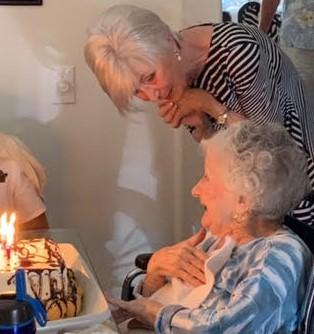Scottsdale resident one of those who benefited from new chemotherapy regimen
Patients living with cancer—especially those with pancreatic cancer—now have more treatment options than ever before. "The most significant change in treatment has been the personalization of therapy," said Steven Sckolnik, MD, a radiation oncologist with HonorHealth. "There is no longer a 'one-size-fits-all' approach. By using new treatment techniques, we can individualize cancer care and maximize response while minimizing side effects."
That certainly applies to Scottsdale resident Janet B. She knew something was seriously wrong with her health in June 2017 when her skin turned yellow. After a visit to her primary care doctor, she found her way to a surgeon who diagnosed her with Stage 2 cancer confined to her pancreas, known as localized pancreatic cancer or pancreatic ductal adenocarcinoma (PDAC).
Impressive response
By September of 2017, Janet had begun the regimen of four drugs administered intravenously: Abraxane, Gemcitabine, Cisplatin and Paricalcitrol (a version of activated Vitamin D). She continued receiving that regimen through December of 2017.
Her response to the chemotherapy regimen, followed by a surgical procedure to remove the tumor in the pancreas, has been remarkable. She said when she first consulted with Dr. Borazanci, her tumor marker—an indicator of how advanced the cancer is—was 100. "My last blood test showed it’s now 19," she said. The normal range for the tumor marker for pancreatic cancer, called CA 19-9, in a healthy person is 0-37.
HonorHealth Research Institute is conducting a Phase II study of the same chemotherapy regimen that Janet received.
"The advantages of neoadjuvant therapy in resectable (responsive to surgery) pancreas cancer are becoming more and more prominent as chemotherapy options continue to improve," Dr. Amini said.
When Janet was asked how she’s feeling now, she replied, "I cannot talk about how I feel without talking about the people at the HonorHealth Research Institute. From the minute you walk in the door, every staff encounter is a model for what the patient experience should be about." She added that she’s "eternally grateful for every day I wake up. And I have great quality of life."
Janet recently celebrated her mother’s 95th birthday (pictured above).



